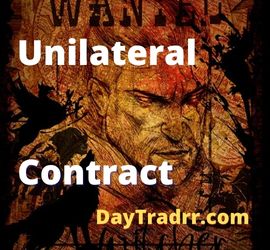What Is The Free Enterprise System?
 A free enterprise system is an economic system where the government places very few restrictions on the types of business activities or ownership in which citizens participate. This type of system is often referred to as a free market or capitalism. In a free enterprise system, individuals are allowed to spend their money the way they want. Often there are several different companies competing for business. In turn, this leads to lower prices and better-quality products. Individuals are also free to pursue any type of job or work that they enjoy.
A free enterprise system is an economic system where the government places very few restrictions on the types of business activities or ownership in which citizens participate. This type of system is often referred to as a free market or capitalism. In a free enterprise system, individuals are allowed to spend their money the way they want. Often there are several different companies competing for business. In turn, this leads to lower prices and better-quality products. Individuals are also free to pursue any type of job or work that they enjoy.
The free enterprise system refers to an economy where the market determines prices, products, and services rather than the government. Businesses and services are largely free of government control. Alternatively, a free enterprise system could refer to an ideology or legal system. In either case, commercial activities are primarily regulated through private measures. Business activities are not regulated by the government. Instead, they are defined by a set of legal rules defining property rights, contracts, and competitive bidding. The argument for free enterprise is based on the belief that government interference in business and the economy hampers growth. A free enterprise legal system tends to result in capitalism.
The Free Enterprise System as Law and Ideology
In principle and in practice, free markets are defined by private property rights, voluntary contracts, and competitive bidding for goods and services in the marketplace. This framework is in contrast to public ownership of property, coercive activity, and fixed or controlled distribution of goods and services. In Western countries, free enterprise is associated with laissez-faire capitalism and philosophical libertarianism. However, free enterprise is distinct from capitalism. Capitalism refers to a method by which scarce resources are produced and distributed. Free enterprise refers to a set of legal rules regarding commercial interaction.
Another definition of free enterprise is in terms of economics and was offered by the Nobel-winning economist Friedrich Hayek. Hayek described such systems as “spontaneous order.” Hayek’s point was that free enterprise is not unplanned or unregulated; rather, planning and regulation arise from the coordination of decentralized knowledge among innumerable specialists, not bureaucrats. (Source: investopedia.com)
The Origins of Free Enterprise System
The first written intellectual reference to free enterprise systems may have emerged in China in the fourth or fifth century B.C. Laozi, or Lao-tzu, argued that governments hampered growth and happiness by interfering with individuals. However, legal codes resembling a free enterprise system were not common until much later. The original home of contemporary free markets was England between the 16th and 18th centuries. This growth coincided with and probably contributed to the first industrial revolution and the birth of modern capitalism. At one time, the English legal code was completely free of international trade barriers, tariffs, barriers to entry in most industries, and limitations on private business contracts.
A free enterprise system has very little government interference. On the other hand, a socialist economic system comes with heavy government regulations. In between free enterprise and socialist economies are mixed economies. The United States used a largely free-market legal approach during the 18th and 19th centuries. In modern times, however, both the United States and the United Kingdom are better classified as mixed economies. While they are largely free markets, they are not unregulated. The government does impose some regulations to protect consumers and workers without infringing on the freedoms awarded to businesses in a free enterprise economic system. Countries such as Singapore, Hong Kong, and Switzerland are more reflective of free enterprise. (Source: ibid)
Free Enterprise System – The Basic Components
Freedom to choose products and services – In a free enterprise system, consumers are the people who pay for products and services. Ultimately, it is their self-interest that helps drive this type of economic system. Consumers decide what they want to spend their money on and which businesses they want to purchase goods and services from. They shop around for the best possible goods at the lowest prices.
Freedom to choose where to work – One of the biggest components of free enterprise is that people are free to choose. This also extends to workers, who have the freedom to choose the type of employment they wish to have. They not only get to choose which field they want to work in, but also which employers they wish to work for.
Driven to maximize profits – Businesses are the producers in a free market system. It is the businesses that are responsible for producing the highest quality goods and services at prices that maximize profits. Businesses respond to what consumers want and what consumers are spending their money on. While free enterprise allows entrepreneurs to open any kind of business they choose, it offers no guarantees that the business will succeed.
Competition among the producers of goods and services – Free enterprise promotes economic growth by encouraging entrepreneurs to start new businesses. Multiple businesses offering the same or similar goods and services leads to competition, which is good for the consumer. When businesses compete with each other to produce better products at better prices, the consumer reaps the benefits. Likewise, competition can lead to innovation as businesses strive to come up with new ways to maximize their profits. (Source: bankrate.com)
Free Enterprise System – Advantages
Unlimited Profit Margins
An economy based on the relationship between supply and demand promotes healthy competition. Companies strive to offer better goods or services than other, similar companies. If one company offers more extensive goods and its profit margins increase, then that inspires its competitors to get innovative so that they can retain or gain some of that market. This is the backbone of free enterprise and is a huge positive. Consumers gain when companies compete to offer more products or services in varied, often more efficient ways. Consider how the shopping industry drastically changed during the last 10 years with Amazon able to ship products directly to consumers, saving them money and time spent driving to a “big box” store.
Efficiency
The competitive backbone of free enterprise nurtures efficiency. Knowing your company is up against another company just like yours means resources at your company’s disposal must be used to maximize all benefits, while also reducing the cost of any risks, financial or otherwise. Consumers dictate the demand, so businesses must regulate the supply, both output, and containment, in order to not flood the market.
High Economic Growth Rates
Countries operating a free enterprise market traditionally have a higher economic growth rate. Generally speaking, this leads to a country’s citizens being wealthier overall. A larger market fosters more competition, which means that more companies open up, which means a greater number of jobs, and the healthy cycle continues to prosper. More jobs mean more money, and more money is poured back into the system by consumers. (Source: smallbusinesschron.com)
Free Enterprise System – Disadvantages
Dangerous Pursuit of Profit
That potential for profit is as alluring as it is dangerous. In order to maximize the highest profit margin, potential companies often resort to unethical or even illegal behavior. The 2010 Deepwater Horizon oil spill is arguably a symptom of such a mindset, because of rushing, that oil company caused a horrific natural disaster. Such behavior is detrimental to its employees because a company is not paying attention to, safety protocols, for example. Rushing or not paying attention to safety protocols can cause lives lost or at least caused sickness and injury. Free enterprise suffers when companies go completely unchecked and foster corrupt competition.
The Temptation to Cut Corners
Ideally, a free-market economy is self-regulating. Self-regulating means that the market is considered responsible enough to go about its business with minimal government oversight. This can backfire, especially where efficiency is concerned. Let’s say a company produces a product that’s in high demand right now, as consumers are willing to pay above the standard market value for it. This means that a company may be tempted to cut corners to efficiently maximize its profit margins. If that business feels free to conduct business however they please – even if that means paying workers an unfair wage or bypassing government regulations – all to be more efficient economically than their competitors, then the entire system suffers.
Companies are Free to Raise Prices
In one word – inflation. This is the biggest danger of economic growth. When the demand outgrows supply, it sets the scene for companies raising prices. This sort of disparity can have a very bad chain reaction. For instance, in the last 30 or so years almost every December, there has been one toy more popular than another, and the sparse supply meant that the demand increased, and with that, prices inflated. This means that consumers have less money to spend on other things – even on necessities. This same negative comes into effect after natural disasters such as hurricanes, when gas stations price gouge the gasoline, knowing that people will pay whatever they ask because supplies are limited. (Source: ibid)
Real-World Example
The U.S. economic system of free enterprise has five main principles: the freedom for individuals to choose businesses, the right to private property, profits as an incentive, competition, and consumer sovereignty.
In the absence of central planning, a free enterprise legal system tends to produce capitalism. However, it is possible that voluntary socialism or even agrarianism could result. In capitalist economic systems, such as that of the United States, consumers and producers individually determine which goods and services to produce and which to purchase. Contracts are voluntarily entered into and may even be enforced privately. For example, by civil courts. Competitive bidding determines market prices. (Source: investopedia.com)
Day trading can be summarized simply as buying security. Then, quickly selling or closing out the position within a single trading day. Ideally, a day trader wants to “cash-out” by the end of each day with no open positions to avoid the risk of losses by holding security overnight. Day trading is not for everyone and carries significant risks. It requires an in-depth understanding of how the markets work and various strategies for profiting in the short term. Short-term profits require a very different approach compared to traditional long-term, buy and hold investment strategies.




